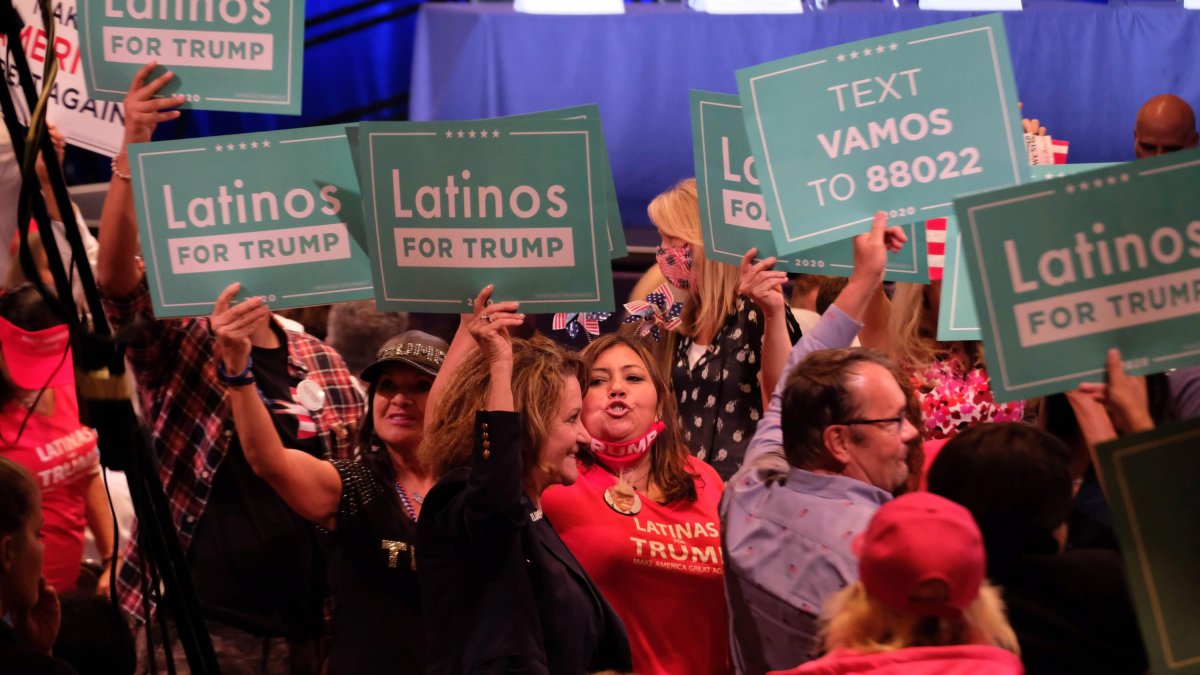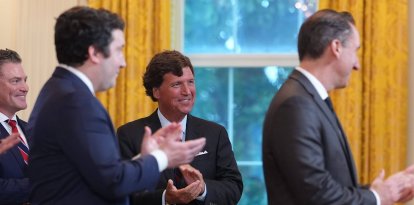Trump isn’t closing the door on Hispanics
President Trump is not rejecting migrants; he is demanding new rules to integrate them into an economy that needs hands, talent, and vision for the future.

Latinos for Trump/ Christopher Brown
In a political climate charged with rhetoric based on fear and confusion, it is time to offer a different perspective. What if, far from representing a threat, President Trump's policies offered an opportunity for legal migrants to productively integrate into a new chapter in America's economic history?
This vision is not ideological or extreme; it is practical. America needs hands, skilled workers, and people willing to contribute with discipline. Legal migration, based on merit and economic participation, is the ideal complement to an industrial renewal strategy. More and more migrants are choosing to train, become entrepreneurs, or join sectors that are being transformed by reindustrialization, such as manufacturing, logistics, technology, and infrastructure.
In this context, Trump himself recently recognized the importance of migrants in key sectors. In a meeting with his cabinet, he stated that "we have to take care of farmers and hotels because they need those people" and announced that certain deportations in sectors with large migrant labor forces will be slowed down, and he also assured that agricultural and hotel workers who self-deport would be allowed to return legally. According to the Bureau of Labor Statistics, more than two-thirds of agricultural workers in the United States are foreigners, and at least 42% are undocumented. In the hospitality industry, the Hispanic workforce is equally predominant.
This recognition, although partial, reveals an unquestionable truth: even within a discourse of immigration control, Trump understands that the U.S. economy needs migrants. And not only does he understand this; he has designed economic policies that, if well implemented, can favor Hispanic workers.
During his first term, deregulation of productive sectors and tax cuts energized the labor market. The numbers bear this out: Latino household incomes rose 7.1%, and Latino poverty fell to its lowest level on record. In addition, the Hispanic unemployment rate fell to 3.9% in 2019, the lowest on record.
Today, by proposing a new phase of tax cuts and regulatory simplification, especially for small businesses, Trump is positing an even more favorable environment for economic progress for migrants. And this momentum is reinforced by the measures of the Department of Government Efficiency (DOGE), led by Elon Musk, which seeks to reduce the administrative burden for employers and workers. Its initiatives are aimed at simplifying procedures, streamlining permits, and reducing compliance costs, which especially favors Hispanic entrepreneurs and employees in productive sectors.
Hispanic communities have proven to be resilient, hardworking, and visionary. According to the Stanford Latino Entrepreneurship Initiative, Hispanic-owned businesses are growing 35% faster than the national average. There are currently more than five million Hispanic-owned businesses in the United States, generating more than $800 billion a year. These businesses not only drive the economy, they also strengthen communities, generate employment, and promote local innovation.
Beyond entrepreneurship, the industrial and technical trades that benefit from the tariff strategy offer real opportunities for legal migrants. These jobs, which are more stable and better paid than many in the service sector, open concrete paths to economic mobility for those who are willing to put in the effort and invest in their future.
So it is time for migrants to lead. Instead of interpreting Trump's policies as a rejection, we should see them as a foundation on which to build: a platform for domestic growth, fair trade, and migration that strengthens the country rather than weakens it.
If Hispanics understand the moment, we will stop playing defense and start leading. We will take advantage of this historic window to not only participate but also to build. Because Trump is not closing the doors on us. He's opening factories for us. And today more than ever, the United States needs legal migrants with courage, effort, and vision for the future to contribute to the development of the country.
























